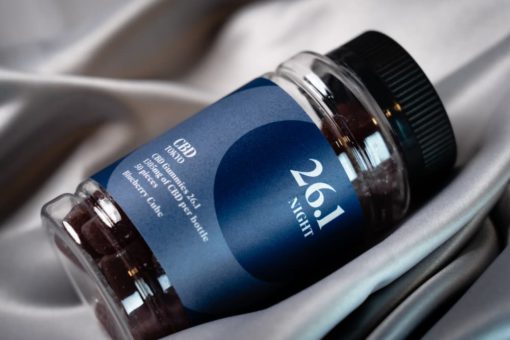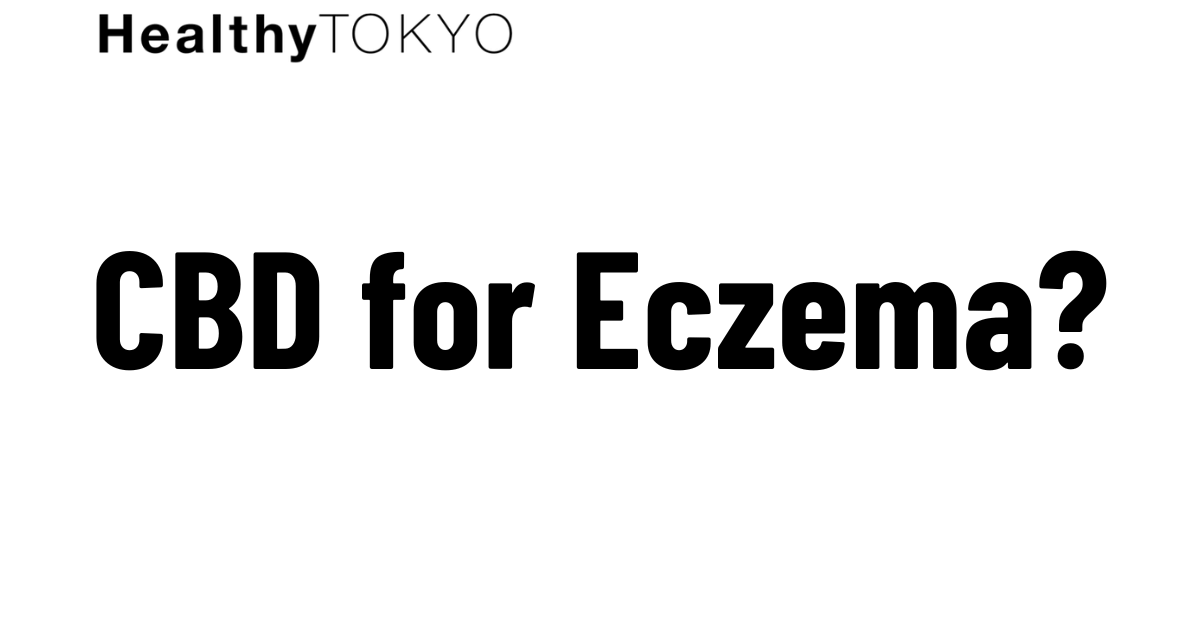CBD Articles, CBD for Skin
Does CBD Have an Effect on Eczema (Atopic Dermatitis) and Psoriasis?
Yes, Cannabinoids such as CBD have immunosuppressive, anti-inflammatory, and other properties that may be useful in the treatment of inflammatory skin diseases, such as various forms of dermatitis, psoriasis, follicular disorders, and scleroderma.
The use of cannabinoids for therapeutic purposes has become more popular recently. Cannabinoids interact with the skin’s endocannabinoid system. Research suggests they may help treat eczema, psoriasis, acne, itching, hair disorders, and skin cancer. However, most studies are still in the early stages, and large-scale clinical trials are needed. This article highlights recent findings and suggests CBD skin care products that might help with this.
Table of contents
- What is CBD and What Are Its Effects?
- How CBD Affects Atopic Dermatitis (Eczema)
- CBD’s Effects on Other Skin Conditions Besides Eczema
- Advantages of Topical CBD
- Choosing CBD Creams/Oils for Eczema
- Using CBD Internally vs Externally
- Common Questions About CBD and Eczema
- Reference Information on Cannabinoids (CBD)
What is CBD and What Are Its Effects?
Cannabidiol, commonly referred to as CBD, is a naturally occurring compound found in the cannabis plant. Unlike tetrahydrocannabinol (THC), the psychoactive component of marijuana, CBD does not produce any mind-altering effects or “high” sensations. Instead, CBD has gained significant attention for its potential therapeutic benefits across various health conditions.
CBD interacts with the body’s endocannabinoid system, a complex network of receptors and signaling molecules that play a crucial role in regulating various physiological processes, including inflammation, pain perception, and immune responses. This interaction is believed to contribute to CBD’s potential effects on skin conditions like eczema and psoriasis, which are characterized by inflammation and immune system dysregulation.

How CBD Affects Atopic Dermatitis (Eczema)
CBD May Contribute to Improving Skin Issues
One of the primary ways CBD may benefit individuals with atopic dermatitis (eczema) is through its anti-inflammatory properties. By modulating the body’s inflammatory response, CBD could help reduce redness, swelling, and itching associated with eczema flare-ups. Several studies have demonstrated CBD’s ability to inhibit the production of pro-inflammatory cytokines, which are key players in the inflammatory process.
Additionally, research suggests that CBD may help strengthen the skin’s protective barrier, which is often compromised in individuals with eczema. A weakened skin barrier can lead to increased moisture loss, dryness, and irritation, exacerbating eczema symptoms. By supporting the skin’s barrier function, CBD may help prevent these issues and promote overall skin health.
Furthermore, CBD has been shown to alleviate itching and discomfort, two of the most troublesome symptoms associated with eczema. By interacting with specific receptors in the skin, CBD may help reduce the sensation of itchiness and provide relief from the constant urge to scratch.
CBD’s Antimicrobial Properties
Another potential benefit of CBD for people with eczema is its antimicrobial properties. Eczema can increase the risk of skin infections, as the compromised skin barrier allows bacteria and other pathogens to penetrate more easily. CBD has been found to exhibit antimicrobial activity against a range of bacteria, including those commonly associated with skin infections. By reducing the risk of bacterial infections, CBD may help prevent further exacerbation of eczema symptoms.
Low Risk of Side Effects
One of the advantages of using CBD for skin conditions like eczema is its generally low risk of side effects. Unlike many conventional medications, CBD is well-tolerated by most individuals when used appropriately. However, it’s important to note that some individuals may experience mild side effects, such as skin irritation or dryness, particularly if using CBD products with certain additives or fragrances.

CBD’s Effects on Other Skin Conditions Besides Eczema
While the focus of this article is on eczema and psoriasis, it’s worth noting that CBD’s anti-inflammatory and soothing properties may also benefit individuals with other skin conditions. For example, CBD has shown promise in managing psoriasis, another inflammatory skin disorder characterized by red, scaly patches. Additionally, CBD’s ability to regulate sebum production and reduce inflammation may make it a potential treatment option for acne and other inflammatory skin conditions.
Furthermore, CBD’s antioxidant properties may contribute to skin rejuvenation and anti-aging effects. By neutralizing free radicals and reducing oxidative stress, CBD may help protect skin cells from damage and promote a more youthful, radiant complexion.
Advantages of Topical CBD
Localized Effects Can Be Expected
One of the advantages of using CBD topically, in the form of CBD creams, CBD Patches, CBD ointments, CBD Facial Masks, CBD Balm, CBD salve, CBD lotion, or CBD oils, is the ability to target specific areas of concern. When applied directly to the affected skin, CBD can exert its effects locally, providing relief where it’s needed most. This targeted approach can be particularly beneficial for individuals with localized eczema or psoriasis flare-ups.
Additionally, the amount of CBD applied can be adjusted based on the severity and coverage area of the skin condition. This flexibility allows for personalized treatment and ensures that the appropriate amount of CBD is delivered to the affected areas.
Differences from Oral Consumption
While CBD can also be consumed orally, topical application offers some distinct advantages. Firstly, topical use avoids the potential strain on the liver that can occur with oral CBD consumption. When ingested, CBD must pass through the digestive system and undergo first-pass metabolism in the liver, which can reduce its bioavailability and potentially increase the risk of liver toxicity with prolonged use.
Secondly, topical application of CBD provides more immediate effects on the targeted area. When taken orally, CBD must be absorbed into the bloodstream and distributed throughout the body before exerting its effects. In contrast, topical application allows CBD to interact directly with the skin and underlying tissues, providing faster relief for localized skin conditions.
Choosing CBD Creams/Oils for Eczema
When selecting CBD products for topical use, it’s essential to consider a few key factors:
- THC Contamination. Ensure that the CBD product is free from THC any contamination, as THC can produce psychoactive effects and is illegal in Japan.
- Reputable Manufacturer. Choose products from reputable manufacturers such as HealthyTOYO that follow strict quality control measures and provide third-party lab testing results to ensure purity and potency.
- Intended Use. Select products specifically formulated for topical use on the skin, as some CBD products may be designed for oral consumption or other purposes.
Additionally, it’s advisable to start with lower concentrations of CBD and gradually increase as needed, as individual responses may vary.

Using CBD Internally vs Externally
While this article focuses on the topical use of CBD for skin conditions, it’s important to note that CBD can also be consumed orally or through other methods, such as vaping or sublingual administration. Each method of consumption has its own advantages and potential applications.
Oral consumption of CBD provides systemic effects throughout the body, as the compound is absorbed into the bloodstream and distributed to various tissues and organs. This method may be beneficial for individuals seeking overall wellness support or addressing conditions that require a more widespread effect.
On the other hand, topical application of CBD allows for targeted treatment of specific areas, such as eczema or psoriasis lesions. This localized approach can be more effective for managing skin-related issues while minimizing potential side effects associated with systemic exposure.
In some cases, a combination of internal and external CBD use may be recommended for a more comprehensive approach to managing skin conditions and overall well-being.
Common Questions About CBD and Eczema
Can CBD be used for atopic dermatitis?
Yes, CBD shows promise as a potential complementary treatment for atopic dermatitis (eczema). Its anti-inflammatory, antimicrobial, and skin-soothing properties may help manage symptoms and improve overall skin health.
Does it work for other skin conditions such as eczema?
While more research is needed, CBD’s mechanisms of action suggest it may also be beneficial for other inflammatory skin conditions, such as psoriasis, acne, and dermatitis.
What is the appropriate application amount?
The appropriate application amount can vary depending on the individual, the severity of the condition, and the specific CBD product being used. It’s generally recommended to start with a small amount and gradually increase as needed, following the manufacturer’s instructions.
Reference Information on Cannabinoids (CBD)
Treating eczema is never a task that can be treated lightly. Consult a dermatologist for the most custom-made solution. Discover what the cause fan the skin condition can be, and discuss how CBD can help with your specialist.
For more detailed information on CBD, its relation with cannabis, its properties, and its potential applications, it’s recommended to consult reputable sources and healthcare professionals. Additionally, staying up-to-date with the latest research and developments in the field of cannabinoid science can provide valuable insights into the evolving understanding of CBD’s effects on various health conditions, including skin disorders.








